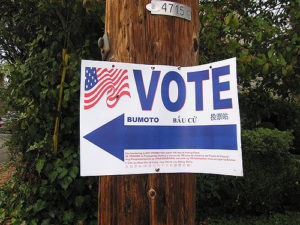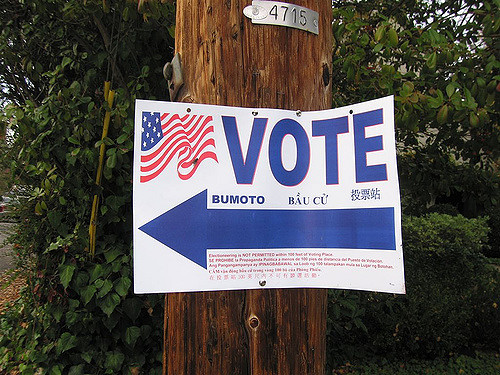 By Devon Roberts, Lillian’s List
By Devon Roberts, Lillian’s List
We spend so much of our energy dissecting our elected officials’ actions, votes, and statements, but the question often lost in the political discourse is “How did this person even get elected?” Well, she won the most votes, right? Most likely yes, but she also could have been appointed. If she was elected, who helped her win, and what campaign tactics were employed? Why did she become the candidate in the first place?
Being involved in politics is important, now more than ever, but too often we don’t get involved until it’s too late and bad politicians are making our laws. This leads to less control by voters and a lack of understanding of the campaign process. I worked on four Congressional campaigns before I started helping pro-choice, progressive women win seats in the NC House and Senate with Lillian’s List. When I told friends and family members what I did for a living, they were shocked. Almost all of them were unaware my job was a real thing and there was an industry built around campaigns.
Political campaigns in the United States employ thousands of staff members every year. Even at the local level, where paid staff is often unnecessary, each campaign has volunteers utilizing the same fundraising and canvassing tactics the big campaigns do. Every campaign has influential behind-the-scenes workers strategizing and outwitting the competition, media, and even voters. A political campaign is much more than the candidate. It is just as important to look at who is behind the candidate and what they’re doing, as it is to evaluate the candidate. If we’re going to be involved in politics, we need to start at the beginning, on the campaign level.
The good news is that it’s incredibly easy to help on a campaign. Maybe not year-round, but at some point every campaign, no matter the office, will be starving for helpers. I got my first two internships on campaigns by simply walking into the offices and asking to be an intern. I recommend starting small with a candidate you support where you live. In the spring when campaigns ramp up, search online or in the newspaper for candidate announcements. On a local race for City Council or Mayor, or even Congress, the chances are high that volunteers get to interact with the candidate frequently. You’ll visit the campaign headquarters and see the hustle and bustle, overhear the manager consulting with staff, or watch the candidate practice her stump speech. If you show up enough and start to ask questions, the staff will explain their jobs and why they’re necessary. Trust me, campaign staffers don’t want their careers to be a mystery.
If you really want to help elect the right candidates, there is something you can do before the campaigns even get rolling. Recruit people you want to run for office and help them kickoff their campaign. One surprising fact about running for office is that there is no real written playbook. Brand new candidates, on both sides, Google things and ask former candidates or friends and family for help until they figure out their process. Running for office is not exactly something you can study in school or learn about in a book. No new candidate knows what she’s doing, and no candidate wins alone.
In North Carolina, we’re lucky there are several progressive organizations like Lillian’s List focused on recruiting qualified candidates and offering candidate training. However, these organizations cannot be everywhere and involved in every election. This is why we need recruiters and volunteers at the local grassroots level working hard so the right candidates win. I strongly encourage everyone to work on a campaign at least once in your life. You can make an impact in your community by becoming the behind-the-scenes worker developing a win strategy with the candidate. Maybe you’ll even see that running for office is something anyone can do, and one day become the candidate.

There are no comments
Add yours